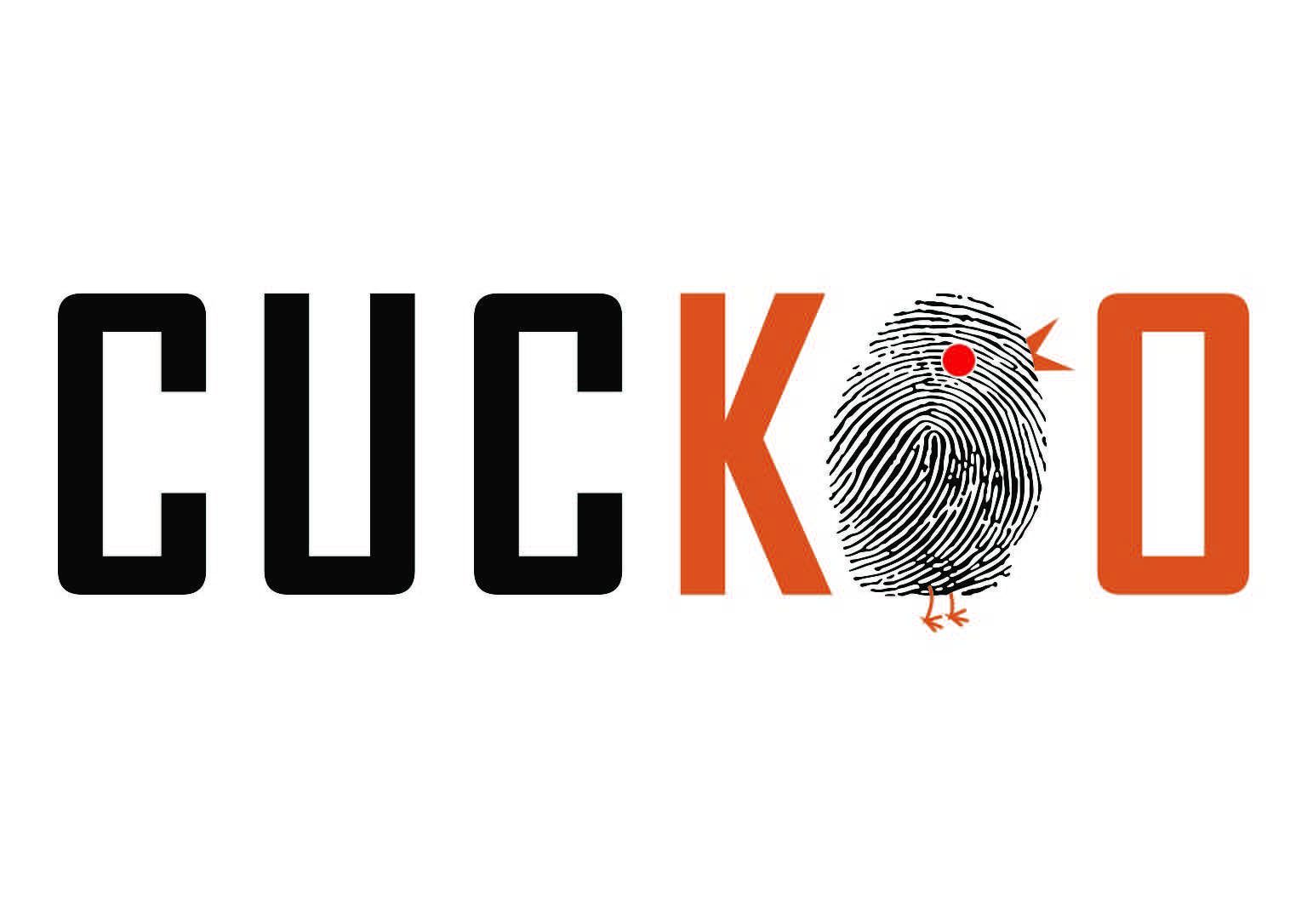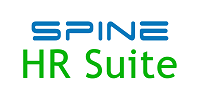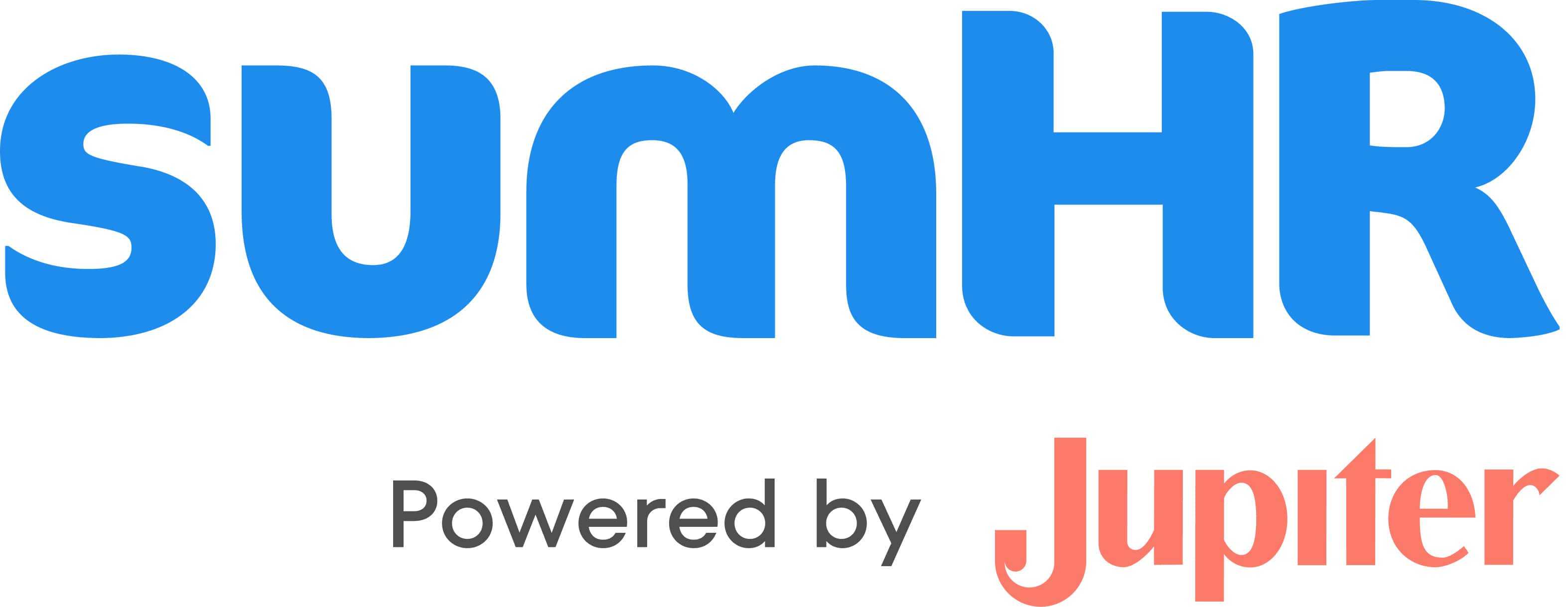Yes, most time management software can be accessed from numerous devices and platforms, making it easy for users to manage their time on the road. This feature enables users to access their tasks, schedules, and other critical information from any computer, phone, or tablet, independent of operating system. This provides flexibility and accessibility, allowing people or teams to stay organized and productive no matter where they are.
List of 20 Best Time Management Software
PulseHRM is a HRMS and employee onboarding solution designed for organizations of all sizes. Powered by Oracle technology, this cloud-based software offers a modular structure that allows you to tailor your experience by starting with essential modul...Read More PulseHRM
RescueTime is solution that helps you understand your daily habits and optimize your productivity. By tracking your computer usage, RescueTime provides valuable insights into how you spend your time and helps you prioritize tasks for maximum efficien...Read More RescueTime
Harvests comprehensive reporting tools provide you with timely updates on project progress and finances, ensuring that your projects stay on schedule and within budget. With easy access to project data, you can make informed decisions for accurate pr...Read More Harvest
PeopleZone is a HR management solution. This comprehensive software offers a range of features such as recruitment, mobile attendance, and performance tracking to simplify and optimize your HR operations. From streamlining processes to boosting emplo...Read More PeopleZone
JetBrains Space solution for tech teams and software companies. This all-in-one platform offers project planning, communication, and group and project management capabilities, allowing teams to streamline their development process and enhance collabo...Read More JetBrains Space
Saddle Point Shift Scheduler – solution for hassle-free shift planning. Our easy-to-use tool allows you to set rules for shift allocation, including limitations on consecutive night shifts, mandatory downtime, and prohibited consecutive shifts...Read More Saddle Point Shift Scheduler
Experience the power of OnTheClock is a online time tracking solution that revolutionizes employee management. Our streamlined system offers advanced features such as employee GPS, seamless payroll integration, and user-friendly mobile apps, making c...Read More OnTheClock
Insightful: the top-notch workforce analytics and productivity software used by over 3,000 reputable brands around the globe. Our dependable data-focused solutions and offerings enable you to improve employee efficiency and output, whether they are r...Read More Insightful
AVAIMA Time & Attendance solution for managing your employees attendance. Our user-friendly software makes it effortless to keep track of clock-in/out times, absences, half days, and hours worked. With effective procedures, detailed reports, and insi...Read More AVAIMA Time & Attendance
HRMTHREAD, the premier web-based payroll software highly favored by over 5000 satisfied clients. With its advanced features, managing employee database and payroll has never been easier. Its user-friendly interface allows for smooth navigation and si...Read More HRMTHREAD
PraxisTime stands out as a leader in the field with its cutting-edge software, effectively elevating productivity and streamlining operations. With innovative features and tools, it transforms time and resource management for businesses, leading to i...Read More PraxisTime
Alacrity Time and Attendance is resource management solution created to enhance productivity in organizations. With our software, you can efficiently manage your workforce, the most critical aspect of your business. Time Track streamlines all your ti...Read More Alacrity Time and Attendance
FlexiServer is solution for tracking employee hours and monitoring computer usage. This software comes with advanced features that facilitate vacation time and sick leave management, creating a seamless experience for HR and employees. It also offers...Read More FlexiServer
CuckooTech - the leading attendance platform that has mastered the art of gamification. Say goodbye to compliance woes and hello to unparalleled employee engagement. Our satisfied clients swear by CuckooTech for surpassing their expectations and fulf...Read More CuckooTech
Jibble is a cloud-based tool that streamlines time and attendance tracking for businesses. With seamless clock-in and clock-out options on web browsers, Slack, and mobile devices, employees can easily record their hours. Its automated timesheet featu...Read More Jibble
Spine HR Suite, our top-rated HRMS software, provides a simplified and user-friendly experience. With complete employee records and compliance management, it effectively handles employee management, workflow, and accounting tasks. Designed to meet al...Read More Spine HR Suite
sumHR, a modern and user-friendly HR management system perfect for startups and SMEs. With its cloud-based platform, sumHR simplifies and streamlines HR and payroll tasks, providing a stress-free experience. Its charming interface makes it effortless...Read More sumHR
WhoIsIn - the premier web-based solution for biometric attendance tracking. Ideal for businesses with multiple locations, it provides full visibility into employee movements for efficient management and oversight. Featuring valuable added features, W...Read More WhoIsIn
Flightman is an aviation software that raises the bar for airline operations and improves flight performance. Its exceptional reputation among industry leaders stems from its ability to streamline tasks such as flight planning and crew management. Th...Read More Flightman
TimeTackle is a solution for effortless calendar management. With its advanced CALENDAR ANALYTICS, accurate mileage tracking, and seamless invoice generation, TimeTackle empowers professionals to boost productivity and stay organized. Streamline your...Read More TimeTackle
Learn More About Time Management Software
- What Is Time Management Software?
- What Are The Recent Trends In Time Management Software?
- Benefits Of Using Time Management Software
- Important Factors To Consider While Purchasing Time Management Software?
- What Are The Key Features To Look For In Time Management Software?
- Why Do Businesses Need Time Management Software?
- How Much Time Is Required To Implement Time Management Software?
- What Is The Level Of Customization Available In Time Management Software?
- Which Industries Can Benefit The Most From Time Management Software?
- Conclusion
What Is Time Management Software?
Time management software is a powerful tool that helps individuals, teams, and corporations efficiently manage and organize their time. It has a number of features and functionalities that help users manage and allocate their time more efficiently, prioritize tasks, and increase productivity. This software usually contains capabilities like task management, project planning, scheduling, calendar integration, and time tracking.
These applications let users to build to-do lists, set reminders and deadlines, and keep track of their chores and projects in one place. Furthermore, time management software frequently includes reporting and analytics features, allowing users to get insights into their time utilization, detect patterns, and make data-driven decisions to improve their productivity.
Furthermore, some advanced time management software includes capabilities such as team collaboration, resource management, and budget tracking, making it an invaluable tool for firms with remote teams and complex projects. Investing in time management software can help individuals and companies increase efficiency, reduce stress, and achieve their objectives more successfully. With so many options on the market, it is critical to examine your individual demands and budget before selecting the program that best meets your needs.
What Are The Recent Trends In Time Management Software?
In recent years, time management software has grown in popularity as a tool for individuals and businesses trying to increase productivity and maximize their time. As technology advances and demand for efficient time management solutions rises, new trends develop in the time management software business.
Here are some of the most recent trends affecting the landscape of time management software:
1. Cloud-Based Solutions: One of the most significant changes in time management software is the transition to cloud-based solutions. Cloud-based software enables users to access their time management tools from any internet-connected device, making it perfect for remote work and collaboration. This trend is projected to continue as more organizations implement remote and flexible work options.
2. Integration With Other Productivity Tools: Time management software is no more a stand-alone tool; it is increasingly being combined with other productivity tools such as project management, team communication, and calendar applications. This integration enables a more holistic approach to time management by combining all critical productivity tools on a single platform and optimizing operations.
3. Mobile Apps & Accessibility: With the increased reliance on smartphones, more time management software vendors are producing mobile apps to meet their users' on-the-go needs. This trend addresses the desire for flexibility and accessibility by allowing users to manage their time and track projects even when they are not at their computer.
4. Artificial Intelligence And Automation: As technology progresses, time management software becomes increasingly intelligent and automatic. These solutions, which include features such as automatic time monitoring, AI-powered scheduling, and smart reminders, can help users save time and make better decisions about their work and productivity.
5. Focus On Work-Life Balance: Time management software is no longer merely for tracking work tasks and deadlines. With the growing emphasis on work-life balance, many time management software now incorporate capabilities that allow users to track and prioritize their personal time and activities. This development reflects an increased understanding of the value of downtime and self-care for overall productivity and well-being.
Benefits Of Using Time Management Software
Time management is an essential component of every organization's or individual's efficiency and success. However, with an infinite list of activities and responsibilities, it can be daunting and difficult to manage time effectively. Here is when time management software comes in handy. It is a digital solution that enables individuals and businesses to efficiently plan, organize, and track their time and work.
1. Increased Productivity: Time management software enables users to prioritize projects, establish deadlines, and track progress, assisting individuals and teams to keep on top of their job. It removes the need to transition between tools and systems, which saves time and boosts production.
2. Improved Time Allocation: Time management software allows users to assess their daily, weekly, or monthly plans and assign time to certain tasks accordingly. This reduces task overpopulation and provides a balanced use of time, resulting in increased efficiency.
3. Reduced Stress: In the digital age, multitasking has become the norm, leading to increased stress and burnout. Time management software allows users to focus on one job at a time, lowering stress and enhancing attention.
4. Accurate Time Tracking: Time management software enables the accurate logging of time spent on particular tasks, providing an overview of how much time is spent on each activity. This helps to identify time-wasting jobs and allocate time more effectively in the future.
5. Improved Collaboration: Many time management software systems have collaboration features that allow team members to examine each other's schedules, assign tasks, and communicate more effectively. As a result, projects are completed more efficiently and on time.
6. Real-Time Updates: Time management software allows users to view their schedules and tasks at any time and from any location, enabling real-time updates. This allows people and teams to stay up to date on developments and adjust their schedule accordingly.
7. Cost Savings: Time management software reduces the need for manual tracking and monitoring, which saves both time and money. It also helps identify areas where time and resources are being wasted, resulting in long-term cost savings.
Important Factors To Consider While Purchasing Time Management Software?
When looking for the best time management software, consumers should examine many things to ensure they make an informed purchase.
Here are some crucial considerations to consider while selecting time management software:
1. Features And Functionality: The first item to analyze is the software's features and how they fit your specific requirements. Some important elements to look for are task scheduling and tracking, project management, time monitoring, and team collaboration. Make a list of must-have features and prioritize them while comparing software solutions.
2. User Interface And Ease Of Use: Successful implementation of time management software requires a user-friendly and straightforward interface. Look for software with a straightforward and visually appealing design that you and your team can easily access and utilize.
3. Compatibility And Integration: Make sure the time management software works flawlessly with your existing tools and systems. This will save you time and effort in data transfer while also preventing disruptions to your business.
4. Mobile Accessibility: In today's fast-paced world, you must be able to access your time management software while on the go. Consider how the program works on mobile devices, and whether it includes a mobile app or a responsive online interface.
5. Security And Data Privacy: Time management software frequently stores sensitive information, such as task details and team member information. Thus, it is critical to ensure that the program includes strong security features to secure your data from potential dangers.
6. Customer Support And Training: Look for a software vendor who provides dependable customer service and training to assist you and your team get the most out of the product. This will help enable a seamless deployment process with fewer potential hiccups.
7. Pricing And Scalability: Think about your budget and the scalability of the program. Will it be able to satisfy your company's expanding and changing needs? Be aware of any additional charges, such as subscription renewals and ongoing support.
What Are The Key Features To Look For In Time Management Software?
Time management software is an essential tool for individuals and businesses seeking to increase productivity and make better use of time. With so many options available in the market, it might be difficult to select the best one for your individual requirements.
To help you make an informed decision, we've developed a list of critical features to look for in time management software.
1. Task Management: A task management function enables you to create and organize daily, weekly, or monthly assignments in one location. Look for software that allows you to create customized task lists and set deadlines and reminders.
2. Time Tracking: With this function, you can keep track of how much time you spend on each activity and project. It gives you a clear picture of how you spend your time and helps you identify areas where you may enhance your efficiency.
3. Calendar Integration: With time management software that integrates with your calendar, you can see all of your chores and appointments in one spot. This assures you don't miss any key deadlines.
4. Team Collaboration: If you're using the program with a team, be sure it contains capabilities for assigning tasks, setting deadlines, and tracking each team member's progress. This encourages transparency and accountability within the team.
5. Reporting And Analytics: The ability to generate reports and analyze your time utilization is essential for understanding your productivity patterns and identifying areas for improvement. Look for software that can generate personalized reports and analytics.
6. Mobile Accessibility: With the increasing use of smartphones, it is critical to select time management software that is mobile friendly. This enables you to manage your chores and time on the go.
7. Integrations: Look for software that works with your existing tools, such as email, project management, and communication software. This saves time and enables seamless workflow management.
8. User-Friendly Interface: An easy-to-use interface is critical for software navigation and adoption. Look for a clean and straightforward design that is simple to use, especially for non-technical people.
9. Customization Options: Every individual or business has unique time management requirements. Look for software with customization possibilities to personalize the solution to your individual needs.
10. Customer Support: Last but not least, confirm that the software provides dependable customer support in the event of any technical problems or questions. This assures a seamless experience and the prompt resolution of any issues that may emerge.
Why Do Businesses Need Time Management Software?
Time management is an important part of every business. In today's fast-paced and competitive corporate climate, efficient time management is critical to success. Here is when time management software comes in handy. It is a strong tool that businesses can utilize to improve daily operations, boost productivity, and achieve their objectives more efficiently. One of the primary reasons why organizations use time management software is to make the best use of their limited resources.
Businesses can use time management software to measure and monitor how much time their employees spend on various tasks, allowing them to identify and remove inefficient activity. Businesses may ensure that their employees use their time properly, resulting in higher production and lower operational expenses. Furthermore, time management software includes capabilities like task management, scheduling, and time tracking to assist firms keep organized and on top of their duties.
Task management allows firms to allocate projects to multiple team members, create deadlines, and track progress in real time. This not only facilitates efficient task allocation, but also improves team collaboration and communication. Furthermore, time management software provides insights and information on how employees spend their time on various activities.
This enables organizations to discover bottlenecks in their operations and make the required changes to increase efficiency. It is also useful in evaluating employee performance and identifying areas for improvement. In addition to enhancing efficiency and streamlining operations, time management software assists organizations in meeting deadlines and completing projects on time.
Businesses with a clear picture of tasks and deadlines may prioritize their work and assure timely completion, resulting in delighted clients and a higher market reputation. Finally, time management software is vital for firms that want to ensure their staff have a healthy work-life balance. Businesses that effectively track and manage time can prevent overburdening their personnel with excessive responsibilities, which leads to employee burnout. As a result, the staff becomes happier and more motivated, which is critical for any company's long-term success.
How Much Time Is Required To Implement Time Management Software?
The time required to implement time management software varies based on a number of factors, including the size of the organization, the complexity of the software, and the level of customization necessary. On average, it can take between a few days and a few weeks to fully integrate time management software in an organization. Before starting the implementation process, it is critical to have a thorough understanding of the organization's aims and objectives.
This will assist in selecting the best time management software for the organization's needs. Once the program has been selected, the implementation process can be divided into numerous parts. The first stage is to determine which key stakeholders within the organization will be involved in the implementation process. This could include HR personnel, IT departments, and department heads, among others.
These stakeholders will be responsible for ensuring the software's smooth uptake and utilization. The next stage is to examine the organization's present time management system and identify any gaps or areas for improvement. This is critical since it will aid in tailoring the software to meet the organization's specific requirements. Following the assessment, the software must be setup and validated before it is deployed throughout the organization.
This procedure may include creating user accounts, changing workflows, and connecting the software with other systems utilized inside the organization. Once the program has been configured, it is time to train the personnel on how to utilize it properly. This training can last from a few hours to a few days, depending on the software's complexity and the employees' technical abilities. Finally, a transition plan is required to facilitate a smooth move from the previous time management system to the new program. To avoid workflow disturbances, both systems may be run concurrently for a period of time.
What Is The Level Of Customization Available In Time Management Software?
Time management software provides a wide range of features and settings that can be tailored to specific needs and tastes, making it an invaluable tool for increasing productivity and efficiency. Time management software offers a range of customization options, from basic to sophisticated, depending on the software and its capabilities.
On a basic level, time management software allows users to choose their settings, such as layout, color scheme, and font size. This allows users to design a workstation that is both visually appealing and comfortable for them, resulting in improved concentration and focus. Beyond visual customizations, time management software allows you to customize task lists and calendars.
This includes the ability to create, edit, and rearrange tasks, as well as set reminders and deadlines. Some software even allows you to color-code tasks or identify them with special labels for easier organizing and priority. Furthermore, many time management software packages integrate with widely used tools and platforms including as email, project management software, and collaboration tools.
This enables users to sync their projects, meetings, and deadlines across all platforms, streamlining their work and lowering the likelihood of missing crucial deadlines. For individuals who want a higher level of personalization, there are time management software solutions with sophisticated functionality and customization capabilities. These capabilities may include the ability to design custom processes, automate repetitive tasks, and generate templates for typical tasks and projects.
Furthermore, certain time management software supports team collaboration, allowing users to define individual and group tasks, assign responsibilities, and track progress. This is especially important for teams who are working on complex projects and managing various tasks. Overall, the level of flexibility accessible in time management software varies greatly depending on the product and its capabilities. Buyers must carefully consider their goals and priorities before selecting a time management software that provides the appropriate level of flexibility for their individual or team requirements.
Which Industries Can Benefit The Most From Time Management Software?
Time management is critical for all businesses, regardless of size or sector. To stay ahead in today's fast-paced and competitive industry, firms must maximize their use of time. Here is when time management software comes in handy. This cutting-edge technology aids in task organization and prioritization, project time management, and general productivity. While time management software can assist all industries, its deployment can have a substantial influence on a few in particular.
Let's take a closer look at which sectors will profit the most from this software.
1. Project Management: Industries that require considerable project management, such as construction, architecture, and software development, rely largely on time management to achieve project deadlines and deliver high-quality results. Time management software can aid in work planning and scheduling, employee hour tracking, and progress monitoring, making it a useful tool in various industries.
2. Healthcare: The healthcare profession is a fast-paced, high-pressure environment that requires effective time management. Healthcare professionals can use time management software to schedule appointments, track patient wait times, and ensure that administrative chores are completed on time. This not only improves efficiency, but also increases patient satisfaction.
3. Education: Both teachers and students can benefit from time management software in the education industry. With the integration of digital technologies and online instruction, students can easily become overwhelmed with duties and deadlines. Time management software can help students create study schedules, set reminders for assignments and tests, and track progress, allowing them to keep on top of their academic duties.
4. Legal: The legal industry is notorious for its high stress levels and strict deadlines, making it an ideal candidate for time management software. Lawyers and legal professionals can use this program to keep their schedules organized, track billable hours, and prioritize work based on their value. This raises productivity and improves the firm's overall efficiency.
5. Small Firms: To develop and flourish, small firms must make the most use of their limited resources. Small business owners can use time management software to track staff hours, manage projects, and arrange activities, allowing them to focus on more important elements of their organization.
Conclusion
To summarize, investing in dependable time management software is critical for any individual or company wanting to improve productivity and efficiency. With the appropriate tools, you can optimize your workflow, track progress, and stay organized, resulting in higher productivity and better time management. When deciding which time management software is best for you, you should carefully assess your requirements and preferences.
The features that each software provides, such as task management, calendar integration, and reporting capabilities, are important to evaluate. Additionally, consider the software's usability and compatibility with your devices and operating systems. Furthermore, examine the software provider's reputation and user feedback. Investing in a well-established and recognized organization helps assure consistent customer service and software updates to match changing requirements.
Finally, the correct time management software may be a game changer for both individuals and corporations trying to better manage their time. We hope this article has provided useful information on the features, benefits, and considerations while making this investment. We wish you the best of luck in selecting the appropriate time management software for your requirements.
Time Management Software FAQ's
Can Time Management Software Be Accessed Across Multiple Devices And Platforms?
Is Time Management Software Future-Proof And Adaptable To Emerging Technologies Like AI, Blockchain Or IoT?
The greatest time management software is built to scale and adapt to new technologies. With the increasing use of AI, blockchain, and IoT in the workplace, time management software takes advantage of these technologies to increase efficiency and accuracy. By automating typical processes, utilizing real-time data, and integrating advanced analytics, time management software is future-proof and evolves in tandem with technology improvements.
Is There A Free Trial Offered To Assess Time Management Software Before Committing?
Most time management software firms provide a free trial period so that consumers can evaluate the program before committing to a purchase. This allows consumers to determine if the program satisfies their requirements and is simple to use. The trial period normally lasts 14-30 days, allowing customers to thoroughly explore the software's features and functioning. Take advantage of free trials to make an informed decision before purchasing time management software.
Does Time Management Software Offer Data Security Features And Meet Regulatory Compliance Standards?
Yes, respectable time management software solutions have sophisticated data security safeguards to keep critical information safe from unauthorized access. These features include data encryption, password protection, and automatic backups. Furthermore, most time management software providers ensure that their platform meets regulatory standards such as GDPR and HIPAA, offering consumers peace of mind that their data is secure and in accordance with legal requirements.
Can Time Management Software Integrate Seamlessly With Existing Tools And Platforms?
Yes, most time management software is designed to work easily with existing tools and platforms. This enables for a more efficient and streamlined workflow because all of your critical tools and platforms can be accessed through a single consolidated system. With connectors for common tools such as email, calendar, and project management software, time management software can help you keep organized and on top of your activities without the need to switch between platforms.






















